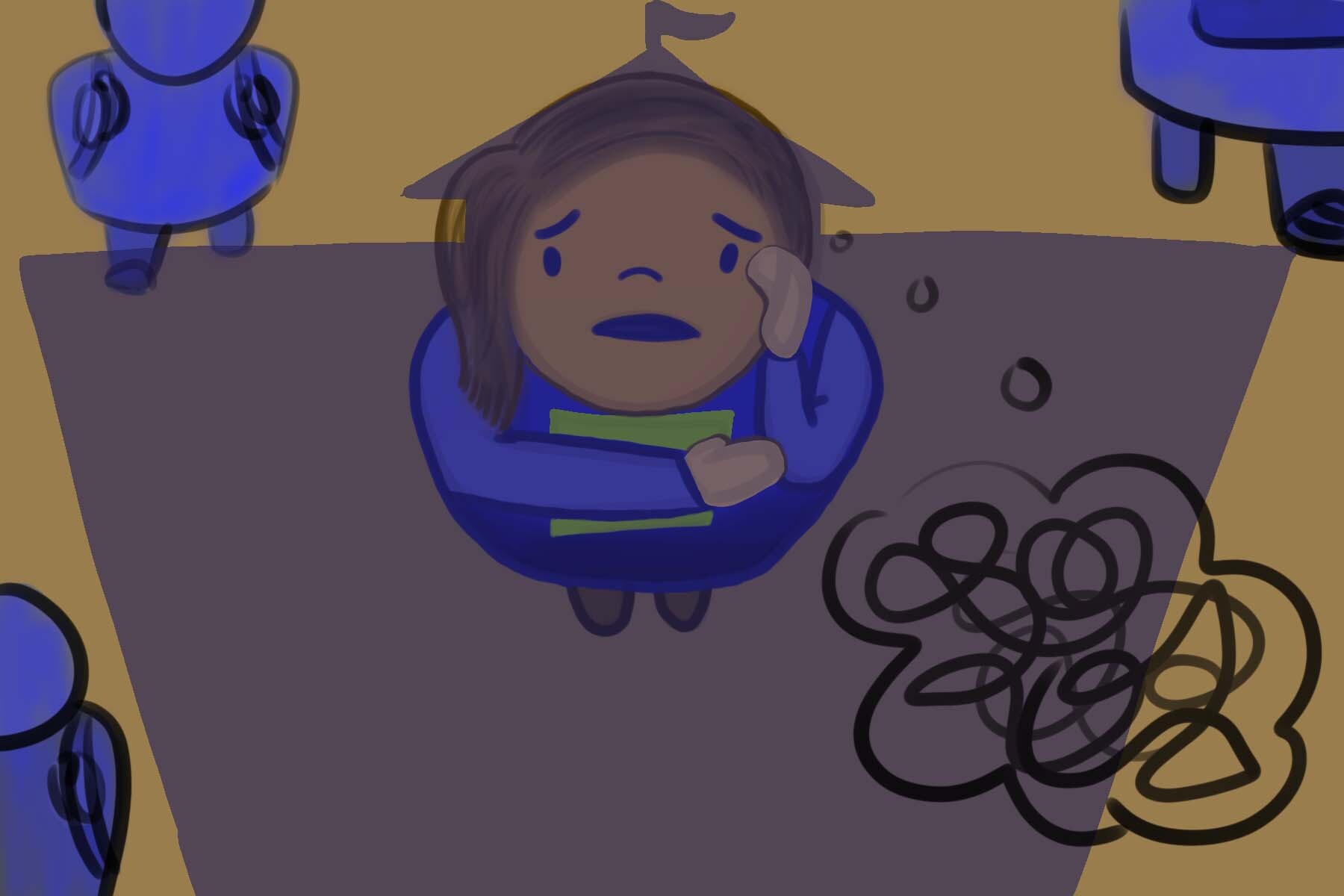Back-to-school season is a nerve-wracking period for everyone, but it can be especially intense for those who are neurodivergent. This year, your worries can be eased with these six tips on how to have a successful transition back to school as a neurodivergent college student!
I’d like to preface the following tips with this: These are not specific to any diagnosis. The label “neurodivergent” is widespread. Someone who’s autistic is going to have different needs than someone with dyslexia. This article is a tool on how to explore your inner self and your needs as a neurodivergent student in order to find more individualized help. That being said, let’s get into it!
1. Don’t focus on what’s “supposed” to work
Do you often come across resources like this that are geared toward neurotypical students? Do the strategies you come across leave you disheartened when they don’t work? Same here. It’s really easy to think you’re “just not good at school” when you try strategies created by other neurotypical students and they don’t work for you. As an autistic student, a more intuitive approach has taken me a long way.
Break it down: What do you struggle with in your schooling? Getting the motivation to start a task? Being overwhelmed with the number of assignments to complete? Becoming easily distracted in the middle of what you’re doing? Identifying your struggle areas is the first step toward finding a solution that works. Once you have these identified, you can start seeking out advice and resources specifically geared toward your experiences. There’s a lot created by people who cope with the same struggles. Surprisingly I actually see a lot of resources, such as this ADHD-friendly planner, on my TikTok feed.
The sooner you stop trying to solve problems using mainstream methods you’ve already exhausted, the sooner you can find something that actually works for you. No matter how abstract the method may appear to others, what matters is finding advice and resources you personally find useful. Get rid of that neurotypical lens!
2. Get the accommodations you need
Personal anecdote time! Whenever I tell people I need academic accommodations, it raises eyebrows and leads to an interrogation. As someone who’s constantly told I don’t “look or act autistic,” this only increases my imposter syndrome — even though I have an official diagnosis. These words make me feel guilty as I email my VISA to all of my professors since it can seem like I’m doing something wrong for seeking help. Because people can’t physically see my disability, they assume I’m either lying to get help I don’t need or that I’m “high functioning” (not a thing for autism but that’s a different conversation). If you’re a neurodivergent student reading this, chances are you have similar experiences.
As someone with intense imposter syndrome, seeking out accommodations was the best decision I made for academic success. What neurotypical people don’t fully grasp is that it’s not always a matter of being able to complete a task, but a matter of the drastically different mental strain it takes to do the same task without help.
Let’s look at exams as an example. When I’m testing, I often mix up details and get lots of points off due to misinterpreting instructions, no matter how often I read and reread them. I focus on how fast or slow other people work in comparison to myself and try to match that pace instead of using one that works for me. I have sensory issues and get easily distracted by the noises and appearance in the room I’m testing in. At times it leads to a meltdown.
Thanks to my accommodations, I have 25% extended time to work at a pace that fits my needs, the option of testing in a less distracting environment and permission to wear noise-canceling headphones. Now, I can just worry about showcasing what I’ve learned to the best of my ability.
No matter what people think, I know what I need and you know what you need too. Do yourself the favor of seeking that out.
3. Stim! Stim! STIM!
Bring your favorite stuffed animal to class. Buy that fidget toy you’ve been eyeing for weeks. Wear comfortable clothing. Flap your wrists and sway back and forth! If you’re trying to regulate your emotions using “normal” methods (whatever that means), cut that out! Stimming isn’t shameful and it’s helpful for everyone! Sitting still is boring anyway.
4. Practice standing up for yourself
Recently, a nurse at an appointment of mine was describing someone in her family who she speculated had Asperger’s. This is an outdated term, and as an autistic person I was incredibly uncomfortable with her assumption, which was based on socially awkward behavior. There was a power imbalance between us, so I didn’t feel comfortable saying my feelings directly, but I didn’t want to just sit there and feel bad.
Instead, I told her that I’m on the autism spectrum and how Asperger’s is an outdated label for someone who is autistic. She, like many others, didn’t really believe me. She interrogated me even though I was there for an HRT appointment, and she told me that I’m not nearly as autistic as the children she worked with, all without knowing anything about me except the fact that I can socialize. It was a horrible situation, but because I said something to contradict her idea of autism it led to a conversation, and I think she actually learned some things from our chat.
This is an example of me standing up for myself. I only took it to an extent I was comfortable with, but I didn’t sit in silence and let her belittle my very real experiences and struggles. When you have an invisible disability, it’s pretty commonplace to have experiences like this one, whether it comes from loved ones, people at school or those in positions of power who shouldn’t ever put you in that position. I’m not a confrontational person and these situations leave me flustered without fail every time they happen.
Still, none of us deserve to be talked over like that, and although it’s really, really difficult to do, we can’t give people that power over us. Whether it looks like correcting people or telling someone you don’t owe them an explanation (because you don’t), I challenge you to say something this school year if something like this ever happens to you. You deserve to feel safe and heard, so make others hear you!
5. Use your university’s resources
Whether you’re starting college in a new place or you’re just now looking into ways to get help, the process is long, draining and frustrating. That is, if you do it alone. The cool thing about going to college is that tuition often covers a lot more than classes. Thanks to my university’s programs, I was able to get three free psychiatry appointments before I was able to get a referral to a new psychiatrist outside of my college, I took a whole semester of free one-on-one LGBTQ-based therapy and I started taking testosterone through my university’s health program. Take the time to look into what your university offers for your neurodivergency; it may be cheaper than what you’re currently doing or even free!
6. Remember your strengths when reflecting on your weaknesses
We live in a world that isn’t built for us, and that leads to a lot of struggle, which leads people to believe that being neurodivergent is inherently bad. I love that I’m autistic and I wouldn’t be who I am without it. It gives me compassion for others, a community, a deep love for the people and things I care about, intense sensory experiences and the list just continues. Being autistic rocks. What doesn’t rock is living in a society that doesn’t accommodate my needs.
Don’t forget that you’re awesome in your own special way while you’re figuring everything out. Being neurodivergent can feel like a full-time job with all of the therapy, psychiatry, medications, VISAs, extra meetings and everything else. It’s not your fault that it’s hard. This school year, embrace who you are: even when it’s hard.

















